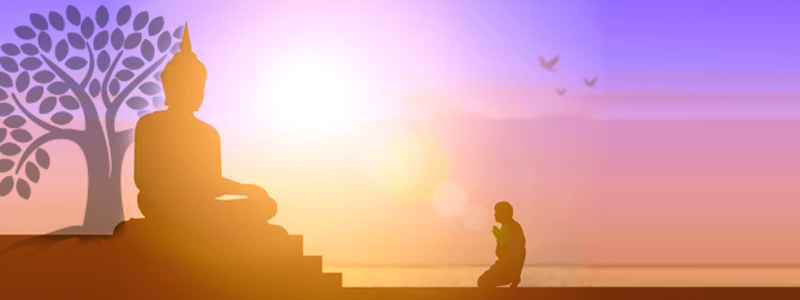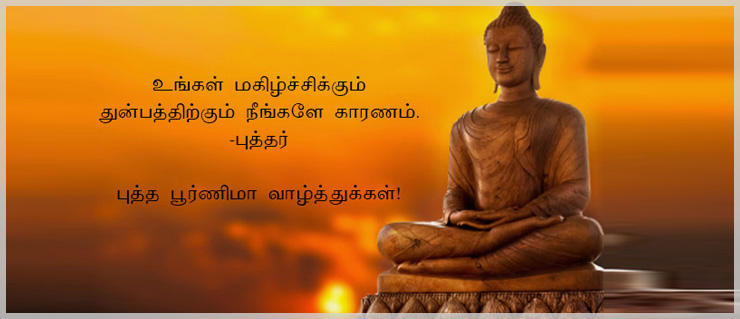Experience in Buddhism is comprised of two components – the objective component and the subjective component. In other words, the things around us and we the perceivers. Buddhism is noted for its analytical method in the area of philosophy and psychology.
பௌத்தம் - Buddhism

Buddhism is a teaching of the highest spiritual master, the Buddha, a path to perfect enlightenment and liberation from all suffering and common to everyone.
The way of life spoken by Lord Buddha is today commonly known as Buddhism. Buddhism is a path of practice and spiritual development leading to insight into the true nature of reality. Buddhist practices like meditation are means of changing yourself in order to develop the qualities of awareness, kindness, and wisdom. Buddhism is not culture-bound.
It moves very easily from one culture to another because emphasis in buddhism is on internal practice rather than on external practice. Its emphasis is on the way you develop your mind rather than the way you dress, the kind of food you take, the way you wear your hair and so forth.
Buddhism is a religion to about 300 million people around the world. The word comes from ‘budhi’, ‘to awaken’. It has its origins about 2,500 years ago when Siddhartha Gotama, known as the Buddha, was himself awakened (enlightened) at the age of 35.
The experience developed within the Buddhist tradition over thousands of years has created an incomparable resource for all those who wish to follow a path — a path which ultimately culminates in Enlightenment or Buddhahood. An enlightened being sees the nature of reality absolutely clearly, just as it is, and lives fully and naturally in accordance with that vision. This is the goal of the Buddhist spiritual life, representing the end of suffering for anyone who attains it.
Lord Buddha
Dhamma
Sangha
About Buddhism
Spiritual Path
Meditation
Meditation Center:
Vipassana Meditation Centre, ‘Dhamma Setu’, 533 Pazhanthandalam Road, Thirumudivakkam, (Via Thiruneermalai), Chennai – 600 044. INDIA.






